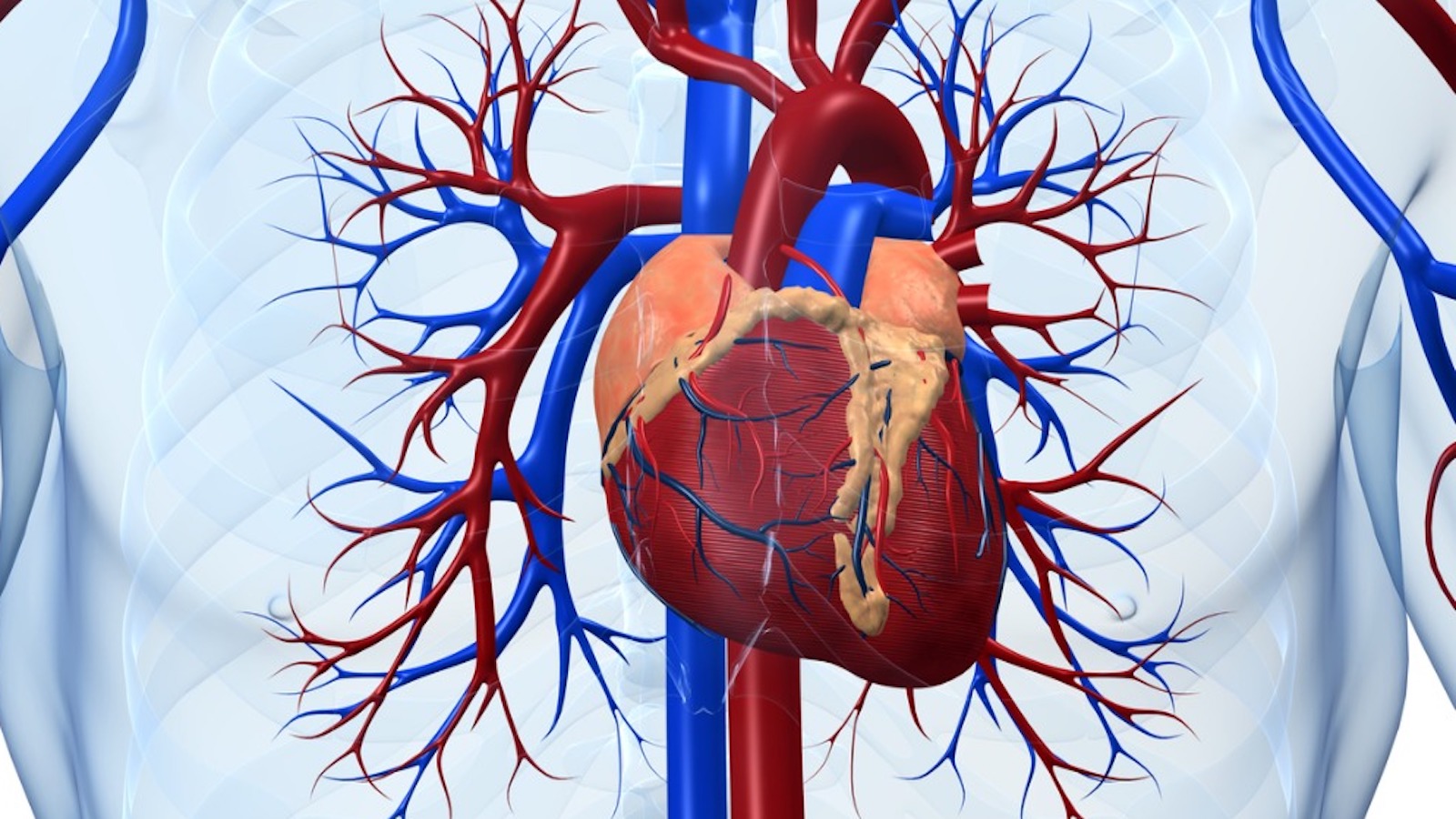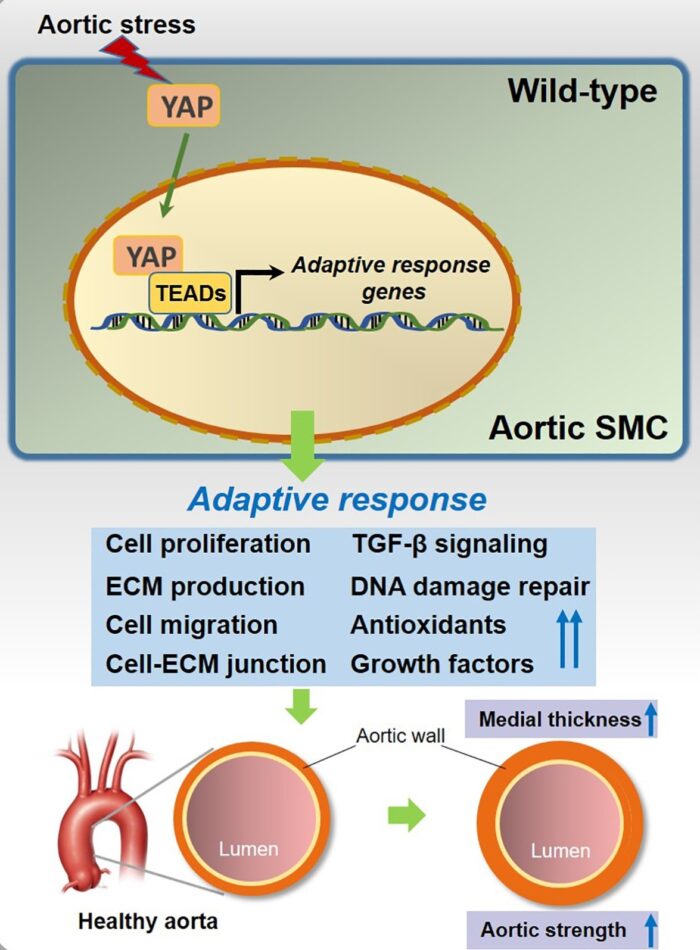Characterizing the Protective Adaptive Response to Stress in Smooth Muscle Cells of the Thoracic Aorta

Diseases of the aorta can be life-threatening. To better understand these diseases, researchers are studying the molecular and cellular processes involved in maintaining the strength of the aortic wall.
Increased blood pressure or volume in the aorta creates stress on the aortic wall. When this happens, aortic cells receive signals that initiate an adaptive response to help maintain the integrity of the aorta.
As part of this response, aortic smooth muscle cells, which are the major cell type in the aortic wall, activate signaling and gene expression pathways to increase aortic wall thickness and strength.
In humans, various genetic defects and environmental risk factors may compromise this adaptive response, resulting in the development of aneurysm, dissection, and rupture. However, the molecular and cellular processes that promote this adaptive response and its regulation are poorly understood.
Under the direction of Ying H. Shen, MD, PhD, Professor of Surgery at Baylor College of Medicine (BCM), and Scott A. LeMaire, MD, Professor of Surgery and Vice-Chair for Research at BCM and Professional Staff at The Texas Heart Institute, researchers are investigating the causes and progression of aortic disease through an American (AHA) Heart Association Strategically Focused Vascular Research Network Award and funding from other sources.
Under the AHA grant, the Aortopathy Research Center was established as a partnership between these investigators and collaborators at the University of Kentucky College of Medicine, with one of the goals being to understand how different types of cells in the aortic wall respond to stress.
The team conducted a study to investigate how aortic smooth muscle cells regulate the adaptive response to stress in the aortic wall.
Their findings have been published in the American Heart Association journal Arteriosclerosis, Thrombosis, and Vascular Biology. Dr. Shen is the senior and corresponding author, and postdoctoral associates Chen Zhang, MD, and Yanming Li, PhD, are co-first authors.
To determine how the adaptive response is regulated in the aortic wall, the Aortopathy Research Center team examined gene expression changes in smooth muscle cells of the thoracic aorta in mice induced to develop aortic aneurysm and dissection.
Using the cutting-edge technology of single-cell RNA sequencing analysis, the researchers found that the adaptive response in aortic smooth muscle cells is characterized by the increased expression of genes associated with functions such as wound healing, cell multiplication, collagen and elastin production, and cell migration (see figure below).

The researchers also performed single-cell analysis of chromatin (the DNA-protein complexes that make up chromosomes). These studies showed that the changes in gene expression are partially controlled by the increased accessibility of chromatin at the regulatory sites of adaptive response genes.
In addition, the researchers identified a transcription factor complex called YAP/TEAD as a top candidate responsible for driving the increased expression of adaptive genes in aortic smooth muscle cells.
Notably, the specific deletion of the gene encoding YAP in the aortic smooth muscle cells of mice compromised the adaptive response to aortic stress, leading to an increased incidence of aortic aneurysm and dissection.
As Dr. Shen concludes, “Aortic stress induces a highly regulated gene expression program in smooth muscle cells that promotes the adaptive response. Our findings support the importance of this adaptive response for aortic homeostasis and protection and point to YAP as a key driving factor. In the future, we hope to determine whether this adaptive response exists in other aortic disease models to better understand the extent to which it protects the aorta against disease formation.”
Read Report
Zhang C, Li Y, Chakraborty A, Li Y, Rebello KR, Ren P, Luo W, Zhang L, Lu HS, Cassis LA, Coselli JS, Daugherty A, LeMaire SA, Shen YH. Aortic Stress Activates an Adaptive Program in Thoracic Aortic Smooth Muscle Cells That Maintains Aortic Strength and Protects Against Aneurysm and Dissection in Mice. Arterioscler Thromb Vasc Biol. 2023 Feb;43(2):234-252. doi: 10.1161/ATVBAHA.122.318135. Epub 2022 Dec 29.
Figure. In normal (wild-type) aortic smooth muscle cells exposed to aortic stress, the transcription factor complex YAP/TEAD is activated to induce an adaptive response gene expression program that leads to increased aortic wall thickness and strength, in turn maintaining aortic homeostasis and protecting against aortic aneurysm and dissection. ECM, extracellular matrix; SMC, smooth muscle cell.
News Story By Nicole Stancel, PhD, ELS(D)




